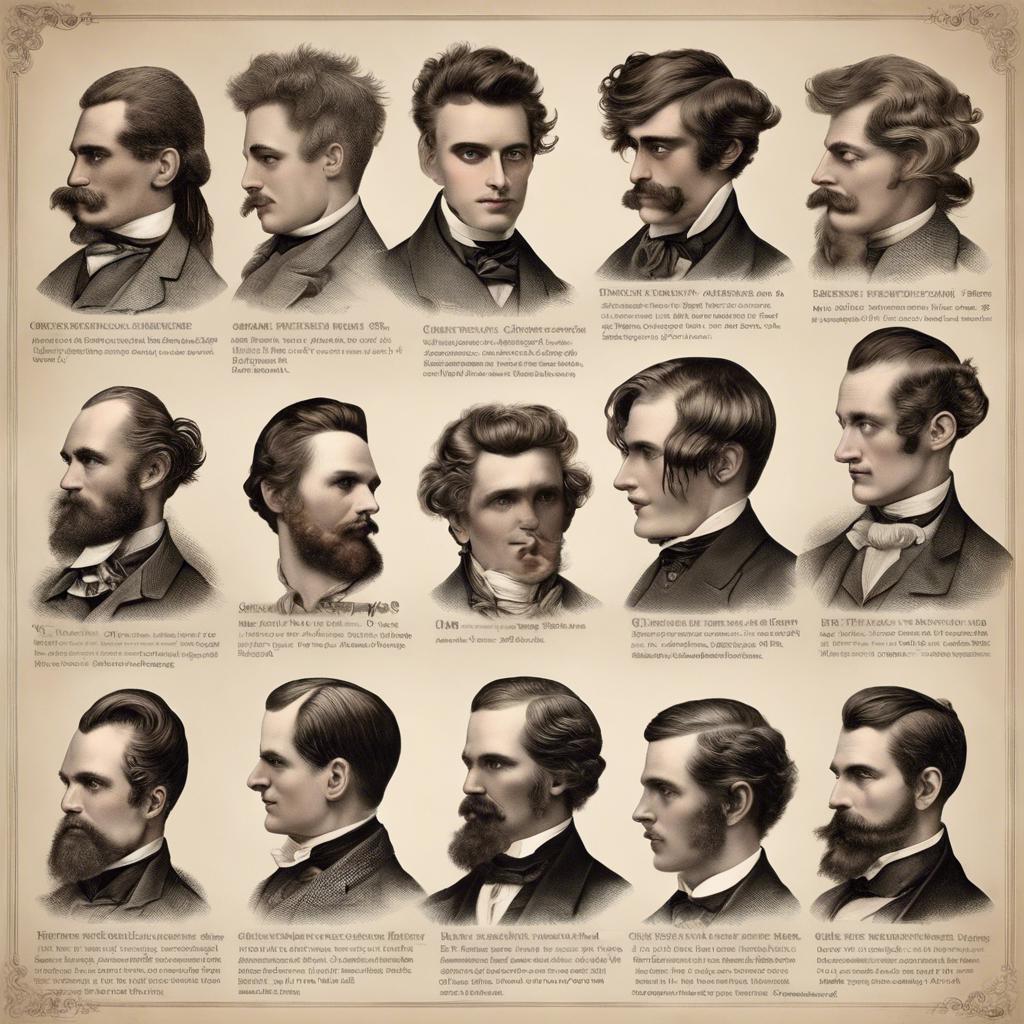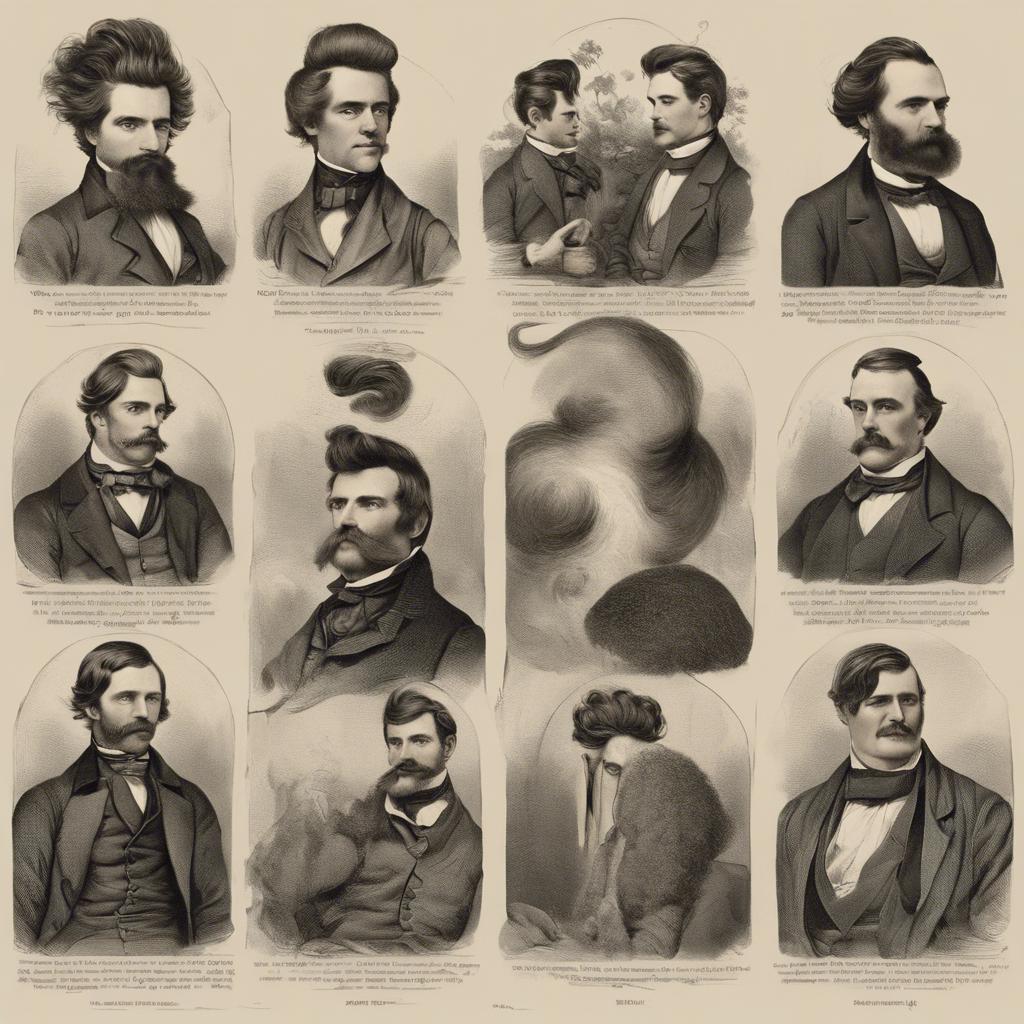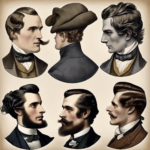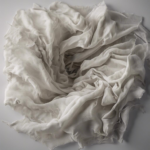In the 19th century, a gentleman’s hairstyle was not simply a matter of personal preference, but rather a reflection of societal norms and values. From elaborate wigs to meticulously styled natural hair, men of the 1800s took great care in their grooming routines. Join us as we explore the fascinating world of 19th century men’s hair, and uncover the cultural significance behind these intricate styles.
Step Into the World of Cheryl Bolen
Dive into the enchanting stories of love, intrigue, and elegance set in the Regency Era. Cheryl Bolen's novels offer timeless romance and captivating tales that will leave you wanting more.
Explore Cheryl Bolen's Books Now
– Evolution of Mens Hairstyles in the 1800s: A Historical Overview
In the 1800s, men’s hairstyles underwent significant evolution, reflecting the societal norms and cultural trends of the time. From the beginning of the century to the end, hair fashion for men went through dramatic changes, influenced by factors such as politics, art, and social movements.
During the early 1800s, men often wore their hair in a neat, short style, with sideburns and a center part. This clean-cut look was popular among the upper classes, reflecting a sense of refinement and sophistication. As the century progressed, hairstyles became more elaborate, with the introduction of curls, waves, and pomades to achieve a more polished appearance.
By the mid-1800s, the Victorian era brought about a shift in men’s hairstyles, with longer hair becoming more fashionable. Men began to grow their hair out and style it in elaborate ways, often using hair products such as oils and waxes. Facial hair also became popular during this time, with many men sporting full beards or mustaches to complement their new hairdos.
– Popular Hair Trends Among Men in the Nineteenth Century
In the nineteenth century, men’s hairstyles underwent significant changes and varied greatly depending on the social status and fashion trends of the time. Some popular hair trends among men during this era included:
- Pompadour: The pompadour hairstyle, characterized by volume at the top of the head and short sides, was a favorite among men in the 1800s. This style was often achieved by using pomade or other grooming products to create height and hold.
- Sideburns: Sideburns, large and bushy, were a common feature of men’s hairstyles in the nineteenth century. They were typically grown long and extended down the side of the face, sometimes connecting with a mustache.
- Center Parting: Many men in the 1800s sported a center parting, where the hair was divided down the middle and styled accordingly. This hairstyle was versatile and could be worn with both short and long hair.
men’s hair trends in the nineteenth century were influenced by factors such as class, occupation, and cultural norms. While some men opted for more conservative and traditional styles, others embraced the changing fashions of the time and experimented with different looks to express their individuality and status.
– Hair Care and Grooming Practices for Men in the 1800s
In the 1800s, men paid great attention to their hair care and grooming practices, often following elaborate routines to achieve the desired look. One popular style among gentlemen of the era was the slicked-back, neatly combed hairstyle, which required the use of hair pomades and oils to keep the hair in place. Additionally, beard grooming was also an essential part of a man’s daily routine, with many opting for well-maintained facial hair styles such as the mutton chops or the Van Dyke beard.
Maintaining a clean and polished appearance was highly valued in the 1800s, and men took great care in selecting the right grooming products for their hair. Common ingredients found in hair care products of the time included beeswax, bear fat, and various essential oils. These products were often scented with fragrances such as lavender or sandalwood, adding a touch of luxury to the grooming experience.
In addition to styling their hair, men in the 1800s also paid attention to their overall grooming practices. Regular visits to the barber were essential for maintaining a tidy appearance, with gentlemen often choosing to have their hair styled and beard trimmed by skilled professionals. Personal hygiene was also important, with men using scented soaps and colognes to freshen up and smell pleasant throughout the day.
– Recommendations for Achieving Authentic 1800s Mens Hairstyles Today
1. Choose the Right Cut: One key element to achieving an authentic 1800s men’s hairstyle is selecting the right cut. Popular choices during this time period included the side part, slicked back hair, and the center part. Make sure to consult with a skilled barber who is familiar with historical haircuts to help you achieve the perfect look.
2. Use the Right Products: To style your hair like a gentleman from the 1800s, you’ll need the right products. Pomade was commonly used to create sleek and shiny styles, while gentlemen often used hair oils to keep their locks looking healthy and luxurious. Experiment with different products to find what works best for your hair type.
3. Maintain Your Look: Once you’ve achieved your desired 1800s hairstyle, it’s important to maintain it properly. Regular trims and touch-ups at the barber shop will help keep your hair looking sharp. Additionally, be sure to brush and style your hair daily to preserve the authenticity of your vintage look.
Concluding Remarks
the hairstyles of men in the 1800s were influenced by a variety of factors including social status, fashion trends, and cultural norms. From the elaborate wigs of the upper class to the simple sideburns of the working class, hair played a significant role in defining masculinity and societal standing during this era. As we look back on the styles of the past, we gain a deeper understanding of the complexities of history and the ever-evolving nature of fashion. The hairstyles of the 1800s serve as a reminder of the ways in which personal grooming practices can reflect and shape the culture of a particular time period. Whether adorned with curls, pomade, or elaborate hairpieces, men in the 1800s sought to make a statement with their hair, just as we continue to do today.


